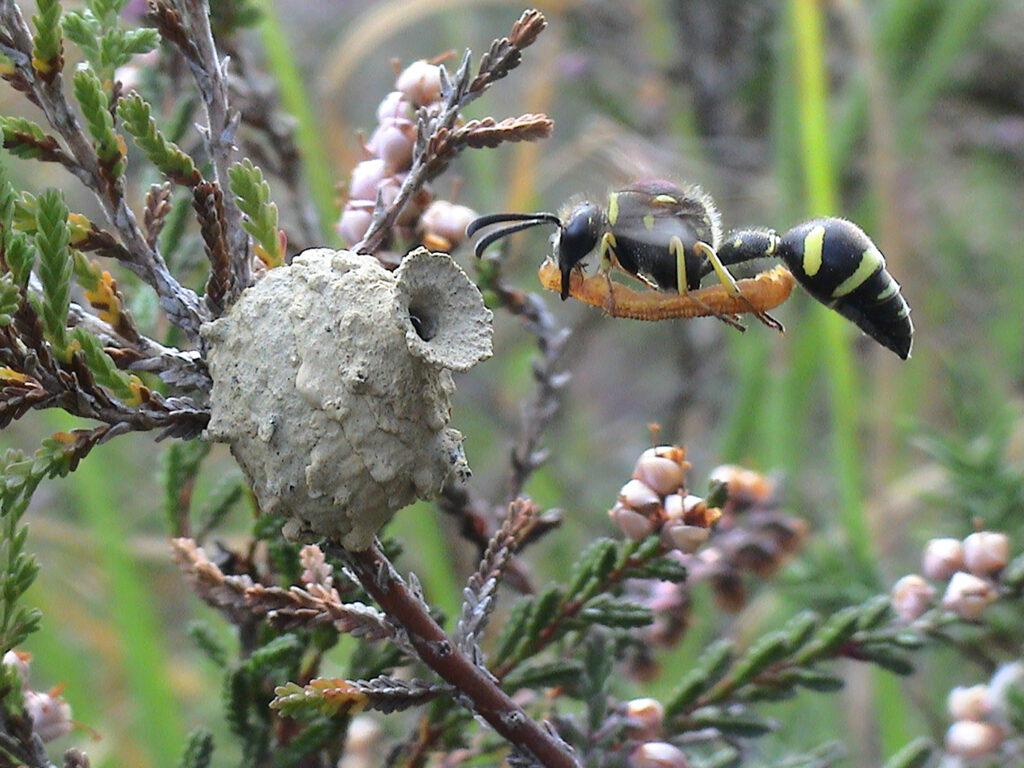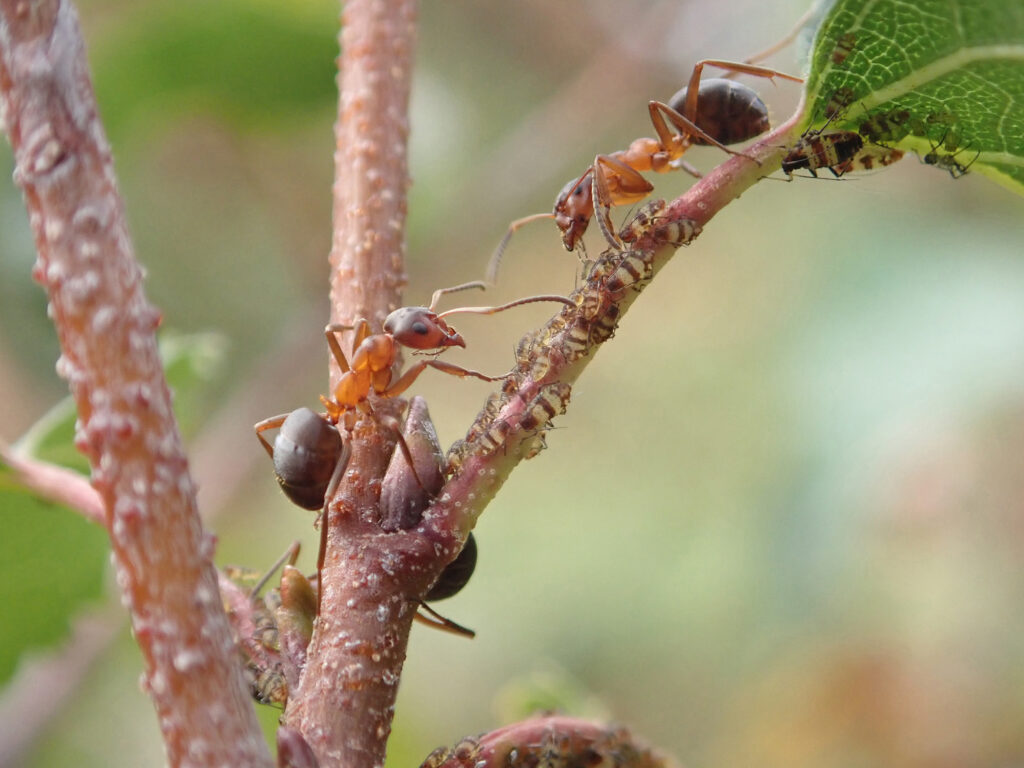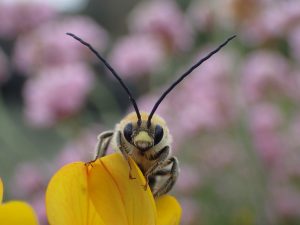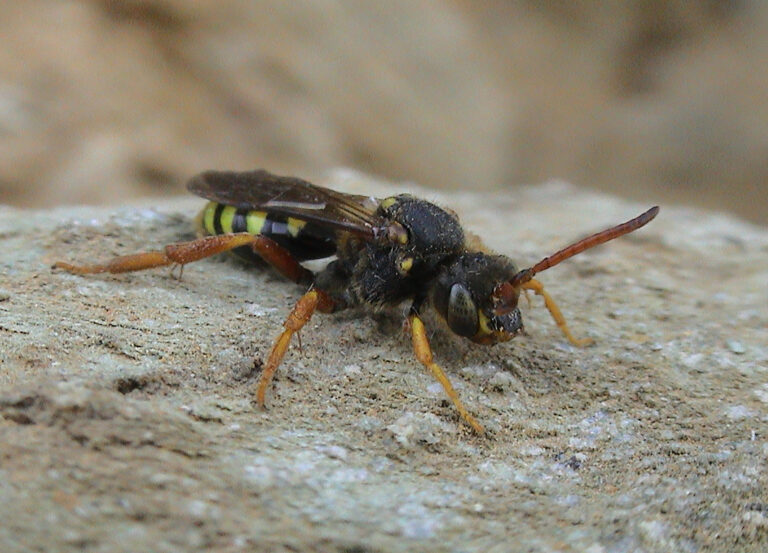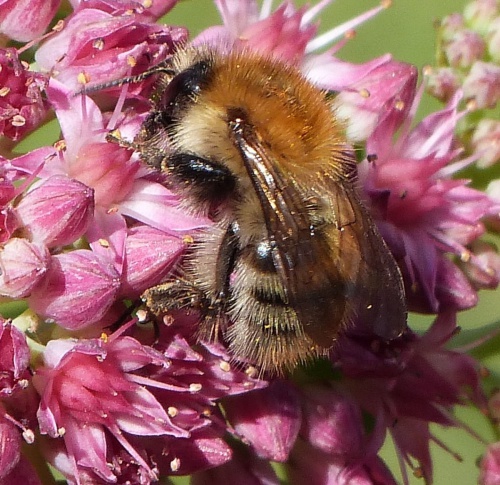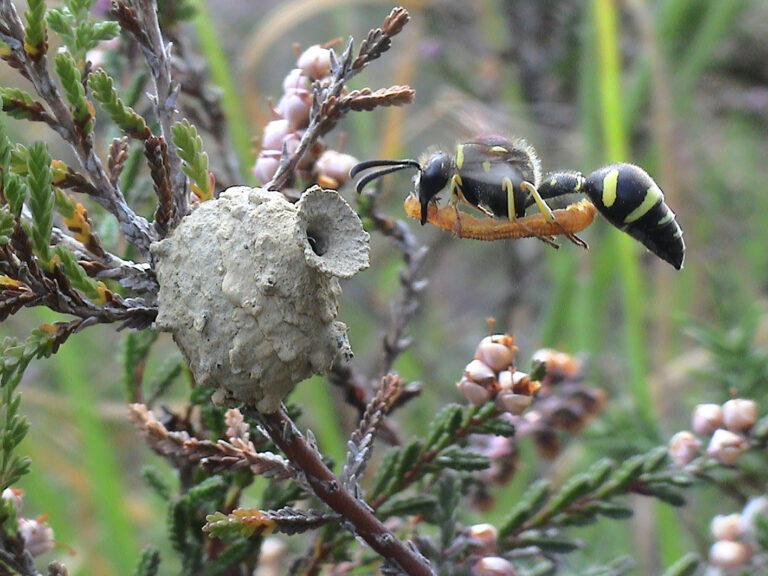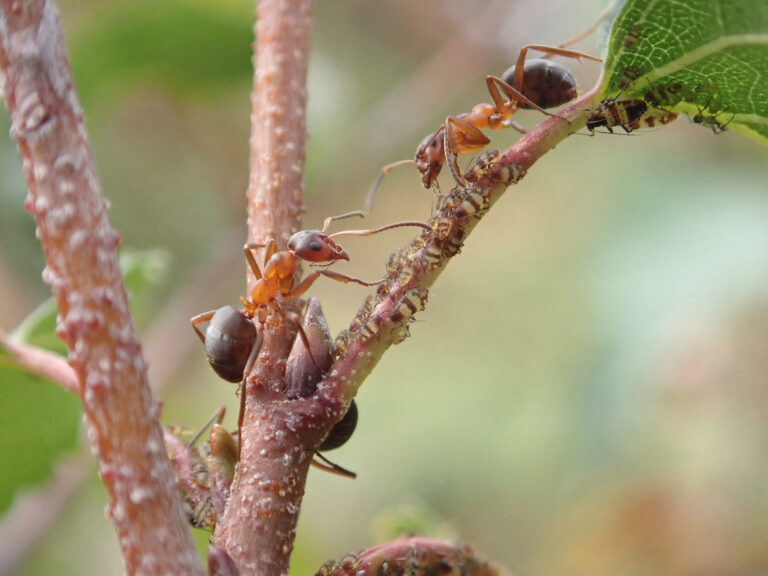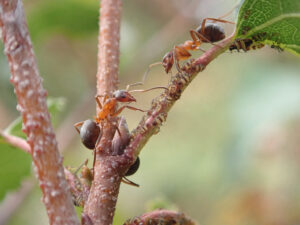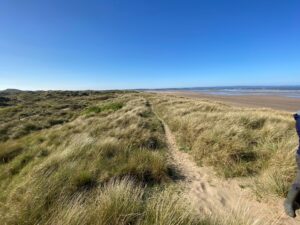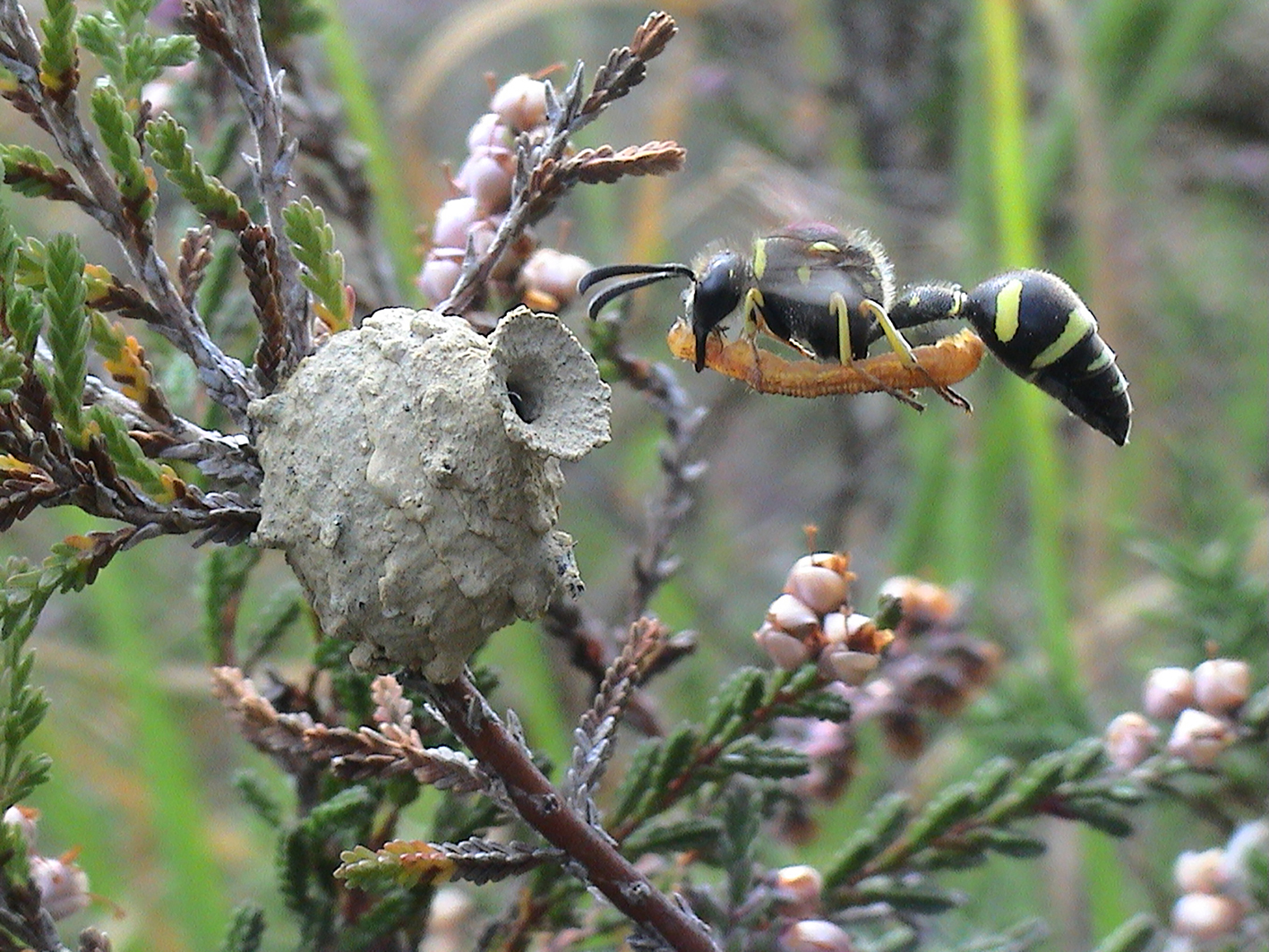Bees, ants and wasps are all discussed here as they are very closely related. They all have four wings (although a few ants are wingless), a narrow waist and a modified ovipositor that can sting as well as lay eggs.
Bees, ants and wasps are among the most beneficial insects to humans. Bees and some species of wasp are crucial pollinators. Wasps are important pest controllers as they feed on the larvae of other insects. Ants improve soil heath because they move organic matter as they forage and tunnel.
Bees, ants and wasps are found in a wide range of habitats across Devon as different species have adapted to live in different conditions. However, all three groups generally need:
Nesting and hibernation sites: Bumblebees, honeybees, ants and some species of wasp live in colonies and exhibit complex social behaviour. Colonies contain queens that lay eggs, sterile female workers that look after the colony and male drones that mate with the queen. However, solitary bees and some wasps build individual nests and work alone. They all need a wide range of warm, sheltered places to nest in summer and hibernate in winter. Wasps usually make their nests from wood they’ve chewed, building the nests in trees, lofts, sheds and underground. Bumblebees nest underground or in dense vegetation. Solitary bees nest in holes in wood, hollow stems, walls or tunnels they dig into loose soil. Ants build their nests in soil.
Food: Bees mainly eat nectar and pollen. Different flower shapes, scents and colours attract different species at different times of year, starting in spring when the queens emerge from hibernation and lasting until late autumn or early winter. Ants and wasps are scavengers and predators and feed on a wide range of plant material and other insects.
Connected habitat mosaics: As bees, ants and wasps have different needs at different times of year, they depend on a network of diverse habitats that provide a variety of food sources.
There are 250 species of bee in the UK and xx in Devon. There are xxx species of ants in the UK and xxx in Devon. There are 9,000 species of wasp in the UK and xxx in Devon. Eight ants, 13 wasps and 31 bees are listed as Devon Species of Conservation Concern. Of these one ant, one wasp and eight bees are listed as Devon Focus Species as they need particular action or attention.
Sawflies, gall flies and parasitic wasps: Bees, ants and wasps are called aculeates and are in the scientific order of insects known as Hymenopera. This order also includes sawflies, gall wasps and parasitic wasps. These species are not discussed in the LNRS as there are no recording schemes for them (although a sawfly recording scheme is being developed). However, many are parasitic and so conserving their host species should also benefit them.

